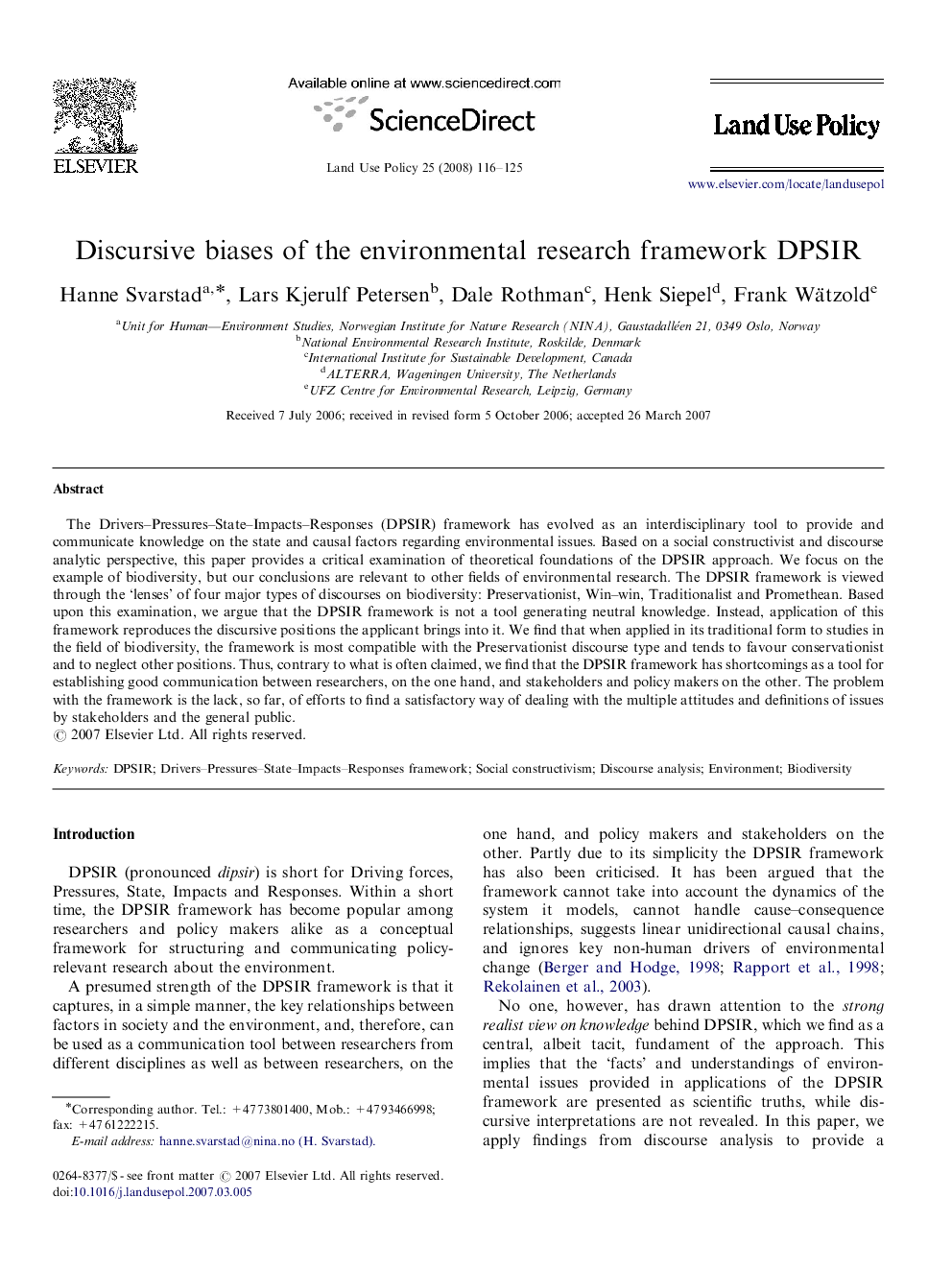| Article ID | Journal | Published Year | Pages | File Type |
|---|---|---|---|---|
| 93682 | Land Use Policy | 2008 | 10 Pages |
The Drivers–Pressures–State–Impacts–Responses (DPSIR) framework has evolved as an interdisciplinary tool to provide and communicate knowledge on the state and causal factors regarding environmental issues. Based on a social constructivist and discourse analytic perspective, this paper provides a critical examination of theoretical foundations of the DPSIR approach. We focus on the example of biodiversity, but our conclusions are relevant to other fields of environmental research. The DPSIR framework is viewed through the ‘lenses’ of four major types of discourses on biodiversity: Preservationist, Win–win, Traditionalist and Promethean. Based upon this examination, we argue that the DPSIR framework is not a tool generating neutral knowledge. Instead, application of this framework reproduces the discursive positions the applicant brings into it. We find that when applied in its traditional form to studies in the field of biodiversity, the framework is most compatible with the Preservationist discourse type and tends to favour conservationist and to neglect other positions. Thus, contrary to what is often claimed, we find that the DPSIR framework has shortcomings as a tool for establishing good communication between researchers, on the one hand, and stakeholders and policy makers on the other. The problem with the framework is the lack, so far, of efforts to find a satisfactory way of dealing with the multiple attitudes and definitions of issues by stakeholders and the general public.
